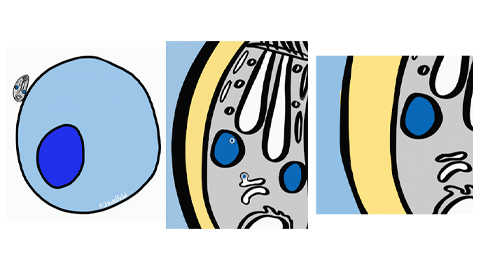Your paper’s been rejected. What now?
An important part of an academic career is publishing your work as peer-reviewed journal articles. It's the main way to get your work out there for others to see and learn from — and to get credit for your ideas and discoveries. Importantly, funding agencies, hiring committees and tenure committees take your publications into account when assessing your productivity.
It's not always easy, though. For starters, the process of formatting (and reformatting) your paper for submission can be frustrating and tedious. And, once you have gotten it submitted, your paper could be rejected right off the bat or at any stage in the review process.
I wanted to focus this column on how to deal with paper rejection both mentally (how to not feel too bad) and practically (what to do next).

Resources
A good first stop might be ScholarlyPeers' list of rejection resources. It’s a treasure trove of information. It includes journal articles about paper rejection, blog posts, podcasts and videos. If you know you want to resubmit your paper but are having a hard time figuring out how much revision to do first and where to resubmit, this post from the above list is a good resource.
Twitter threads can be full of encouragement and humor. Some good ones are:
-
This one about dealing with anxiety that stems from fear of rejection. It’s full of encouraging comments!
-
Or this thread, which explains step by step how to get over rejection and what to do to get ready to resubmit.
For some humor, you can follow a fictional (evil) “Reviewer 3” and laugh to keep from crying, or look through the collection of real bad reviews and feel less alone in the struggle.
Common themes
After looking through these resources and encouraging threads, some common themes came up.
-
Rejection is normal. It happens to every single scientist. It doesn’t mean you are a bad scientist or that your work is bad. Don’t let rejection make you think your research isn’t worth it. If you think it’s worth it, it’s worth it. We can’t tell what research will end up being super valuable in the future. Get yours out there.
-
Sometimes reviewers can be straight-up jerks. You can feel bad and angry about their comments, especially if they’ve written in a condescending or insulting tone, which happens too often. Vent to your friends if you want! Take some time to cool off.
-
Rejection can improve your science. Reviewers often actually do have good suggestions to make your work stronger. Try to see this as an opportunity to improve your science. Some comments are certainly going to be just the reviewer’s opinions. But there is probably good insight too.
-
Rejection can improve your writing. It might be tempting at first to blame the reviewers for being dense, because it seems like your point is so obvious! But you might realize that you didn’t actually make your point as clearly as you thought. Your reviewers are probably typical scientists, and it's important to write so they get what you’re trying to say. Communicating your ideas better will serve you well in the long run.
One last note
Even those scientists whose names have become synonymous with their great scientific discoveries have bad days.
Take a read through this article about Charles Darwin. It contains probably my favorite scientist quote in the world, which Darwin wrote in a letter: “I am very poorly today, and very stupid, and hate everybody and everything.”
It also has a quote about how it sometimes feels when working on a paper: “I am going to write a little book … on orchids and today I hate them worse than everything.” But his work was worth it.
Enjoy reading ASBMB Today?
Become a member to receive the print edition four times a year and the digital edition monthly.
Learn moreFeatured jobs
from the ASBMB career center
Get the latest from ASBMB Today
Enter your email address, and we’ll send you a weekly email with recent articles, interviews and more.
Latest in Careers
Careers highlights or most popular articles

Sketching, scribbling and scicomm
Graduate student Ari Paiz describes how her love of science and art blend to make her an effective science communicator.

Embrace your neurodivergence and flourish in college
This guide offers practical advice on setting yourself up for success — learn how to leverage campus resources, work with professors and embrace your strengths.

Upcoming opportunities
Apply for the ASBMB Interactive Mentoring Activities for Grantsmanship Enhancement grant writing workshop by April 15.

Quieting the static: Building inclusive STEM classrooms
Christin Monroe, an assistant professor of chemistry at Landmark College, offers practical tips to help educators make their classrooms more accessible to neurodivergent scientists.

Unraveling oncogenesis: What makes cancer tick?
Learn about the ASBMB 2025 symposium on oncogenic hubs: chromatin regulatory and transcriptional complexes in cancer.

Exploring lipid metabolism: A journey through time and innovation
Recent lipid metabolism research has unveiled critical insights into lipid–protein interactions, offering potential therapeutic targets for metabolic and neurodegenerative diseases. Check out the latest in lipid science at the ASBMB annual meeting.

